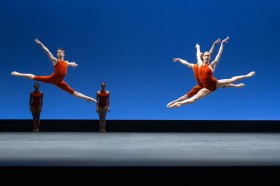Drug and alcohol use and creativity have long been linked in the popular imagination. But while anecdotal evidence about the sector’s over reliance on mood-altering and mind-altering substances is widespread, recent studies – such as Entertainment Assist’s 2016 survey, Working in the Australian Entertainment Industry: Final Report, conclusively demonstrate that levels of alcohol and drug use are much higher in the arts than the general population.
The statistics are – excuse the pun – sobering. According to the data, artists and arts workers consume alcohol at double the rate of the general population; methamphetamine use is eight times greater; cocaine use is 12 times greater; and the use of pain killers for non-medical reasons is seven times greater.
A critical finding in Entertainment Assist’s report is that more than 20% of the 2407 respondents when asked about their substance abuse selected the response, ‘I am addicted’ compared to a national response of 4.5%.
Such figures are backed up across a range of additional studies said Music Australia CEO Dr Paul Saintilan, the editor of a new book, Musicians & Addiction: Research and Recovery Stories.
‘In one research study, for example, 62% of rock music biographies contain an addiction story – that’s the majority statistic, not a minority. And 25% of one sample of pop and rock music stars died of drug and alcohol problems, and that was a pretty comprehensive study,’ Saintilan told ArtsHub.
Read: How creatives can stop drinking themselves to death
Clearly, the sector has a drug and alcohol problem – especially among musicians, where a range of factors including workplace culture and the easy access of alcohol mean that participants are significantly at risk.
‘If you look at the history of jazz, for example, it’s just littered with damage from alcohol and drug use. So to me there is statistically, absolutely a clear-cut case for musicians having an extraordinary vulnerability, over and above some other work groups,’ Saintilan said.
SECTOR-SPECIFIC FACTORS
As to what is causing the high rates of substance abuse and addiction among musicians, Saintilan suggests a range of sector-specific factors are at play.
‘I think that people do self-medicate for performance anxiety with drugs and alcohol. Then there’s creative pressures: there’s clearly a cultural thing about using drugs as an aid to creativity. There’s also a lot of workplace cultural pressures in the music industry – it’s a workplace that’s usually awash in alcohol, which makes it hard when people are trying to moderate,’ he explained.
There are also a number of pre-existing conditions which may contribute to drug and alcohol dependency.
‘There are a couple of cases in our book where artists from a young age have used music to process trauma – just sort of transformed suffering in their lives. So that has actually led them into a music career but it’s also set up a quite heightened risk of addiction. There’s a whole bunch of things going on. It’s sort of a messy intersection of all those things,’ Saintilan said.
‘I think that people do self-medicate for performance anxiety with drugs and alcohol.’
The mystique which surrounds musicians and the rock and roll lifestyle may also be a factor. Do some artists take drugs because they believe that’s what musicians are supposed to do?
‘Some rock front men like Gerard Way from My Chemical Romance have actually explicitly said that. He says he got into the persona because he felt that’s what he needed to do and that persona just took him over … And that tension between public versus private persona is a very common tension in artists, and in fact can lead to a lot of alienation and personal difficulty,’ Saintilan continued.
‘We give case studies in the book about Whitney Houston and various artists who actually had an enormous disconnect between their public and private personas. That tension caused them enormous personal suffering and anguish and they dealt with it through drugs and alcohol.’
An additional trigger for the prevalence of addiction among musicians may be the pressure that comes from being part of a tribe.
‘We’ve got a nice piece in the book about subculture and how drug and alcohol use can sort of be bound up in that and therefore if you reject it, you know, are you rejecting that whole tribe?’
TOWARDS RECOVERY
Written for an audience of musicians – particularly musicians who might feel that alcohol has become a negative rather than a positive in their in their lives – Musicians & Addiction explores the real-life addiction stories of musicians from Australia and overseas, as well as their recovery stories, in order to show that there are real and practical alternatives to the traditional, hard-drinking rock & roll lifestyle.
‘In the book we aim to show that if musicians and performing artists do run into trouble with drugs and alcohol, there is a well-worn path to happiness, health and creativity on the other side of a dependency issue,’ said Saintilan.
One such step is to destroy the myth that giving up drugs and alcohol will destroy your creativity.
‘The myth is that you need to be in pain to write authentically … and there’s a tonne of evidence in this book that [suggests the opposite]. If you can contrast a period of heightened addiction with a period of sobriety and being clean, then your creativity in sobriety is going to be much higher than at the height of a period of heightened addiction, because you’ve got more clarity, you’ve got more focus and you’ve got more basically mental energy around what you’re doing.’
Read: How a sober stint impacts your creativity
Musicians & Addiction: Research and Recovery Stories also collects and highlights a range of best-practice approaches in the live music sector, including peer support programs for musicians.
‘In music cities like Nashville, for example, you can go to musician-based recovery meetings, and there’s lots of those types of initiatives – safe harbour rooms at music festivals and things like that that are really good,’ Saintilan explained.
A PROFESSIONAL APPROACH
One of the most intriguing sections of the book looks at the way musicians can adapt the resilience training of professional athletes to assist in their recovery from addiction.
‘There’s a lot of stuff coming out around the use of meditation and psychological practices to strengthen resilience and to strengthen coping with stress and strain and emotional turbulence,’ said Saintilan.
‘If you treat the business of becoming a professional musician like becoming an elite athlete – think of all the psychological preparation that an elite athlete would do, and all of the attention to sleep, the attention to all these dimensions – if you’re an ambitious artist, that can feed into having a sustainable career as an artist.’
‘If you treat the business of becoming a professional musician like becoming an elite athlete …that can feed into having a sustainable career as an artist.’
Meditation and mindfulness can also play a role in helping musicians avoid the traps of drug and alcohol dependency.
‘Clearly if you’re using a chemical to manage some emotional turbulence and you decide to give up the chemical, you’ve got to have something else to take its place. And that’s why people gravitate towards things like meditation because they need tools to be able to do support themselves.’
Meditation and sports psychology approaches to treating addiction don’t sound very rock and roll, Saintilan admits – but they can definitely play a part in sustaining a creative career.
‘I think that the problem with me establishing or anybody establishing a bunch of rules for musicians is that youth culture reinvents itself constantly, and every generation will just reject the rules of the previous generation, you know?
‘I think there will always be kids who get out of it on drugs and combine it with music, and who will consider this whole approach [to treating and avoiding addiction] just ridiculous. And that will never ever stop. But I do think that there is a segment – and possibly, hopefully a growing segment – that will see that there’s actually a lot of personal advantages in adapting some of this stuff into your life if you want to have a sustainable, healthy career,’ Saintilan concluded.
Learn more about Musicians and Addiction: Research and Recovery Stories.





